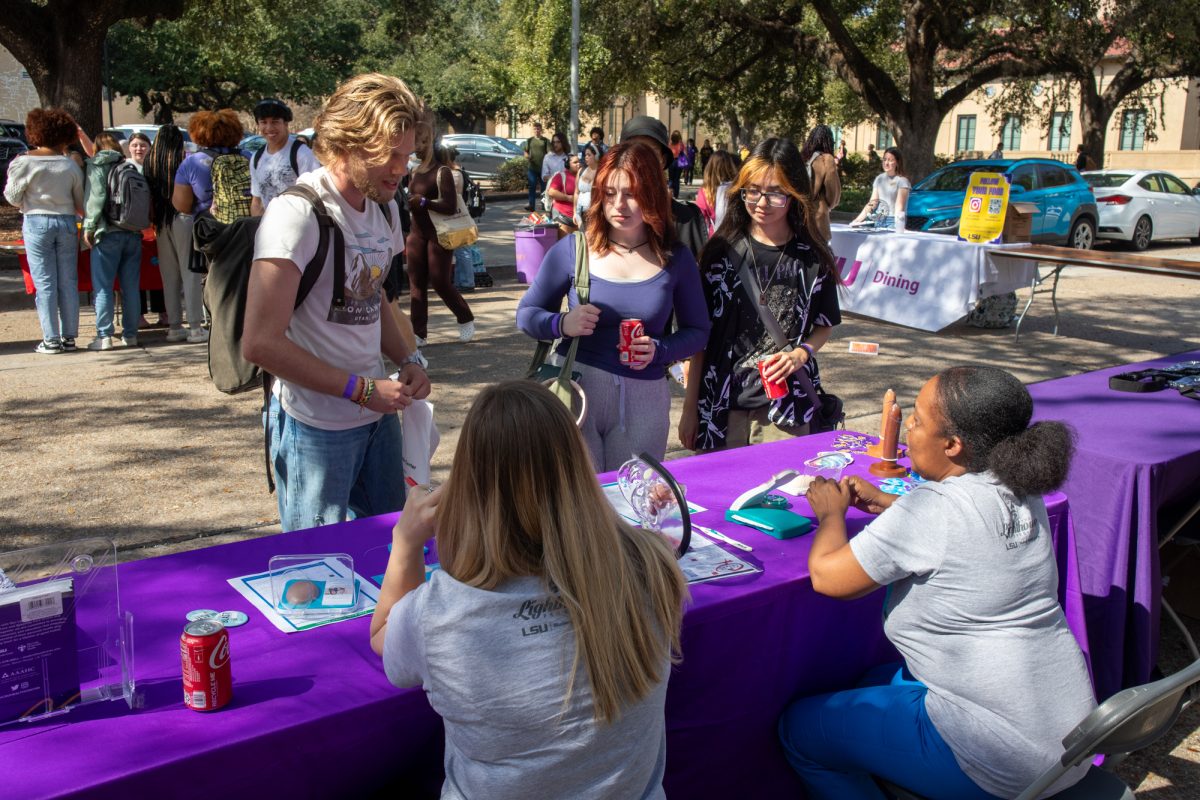For the past few years, physics senior Cadron Pickett has dealt with depression and anxiety. Though he takes a low dose of medication, he still wants the comfort of seeing a medical professional weekly.
But he said the Student Health Center can’t meet his needs.
Pickett said over the last two years, he has had mixed experiences with the Mental Health Service at the Student Health Center.
Pickett, who does not have health insurance, said he tried to set up weekly appointments with a therapist but was told he could come in every other week or pay out-of-pocket for an off-campus service.
He said appointments with the psychiatrist have fallen through for several weeks.
“There’s some really fantastic people there, really nice, definitely their heads [are] in the right place. But to get into the center, it takes a really long time,” Pickett said.
The Mental Health Service, one of three units of the Student Health Center, employs 14 staff members, including one director, two administrative coordinators, one psychiatrist and 10 clinical psychologists, clinical social workers and counseling psychologists.
According to the National Alliance on Mental Illness, one in four adults ages 18 to 24 have a mental illness. If this is true, it’s about 7,500 University students.
If just a fraction of these students want to regularly see a therapist through the Mental Health Service, the low number of staff and resources would be unable to meet the demand, Pickett said in an online petition.
Pickett doesn’t blame his negative experiences at the Mental Health Service on the workers.
He said the University has a responsibility to its students to promote and enhance the health care service.
“It almost seems like LSU’s program is either staying the same or shrinking, instead of responding to [demand],” Pickett said. “I think they have some real responsibility there, and they’re not meeting the needs of their students.”
Director of the Mental Health Service Drayton Vincent said while he doesn’t believe he has enough employees or space — expansion is a possible long-term project — the Mental Health Service does its best to accommodate students, suggesting group therapy or referring them to other facilities if needed.
Vincent said he sees an increase in demand for mental health services every year.
He also said after midterms there are more students seeking services, and the staff may see students every two or three weeks instead of weekly.
Pickett said these suggestions didn’t give him what he wanted.
He was referred to Family Service of Greater Baton Rouge, which he said mostly deals with marriage and family counseling rather than college students.
Group therapy, which previously fell through for him, can be hit-or-miss, Pickett said.
The University of Alabama employs 24 staff members at its Counseling Center.
After adjustments for enrollment numbers, the University of Florida has nearly double the mental health staff per student as the University.
The issue of high demand for mental health care and limited resources stretches beyond campus.
Students don’t have free resources outside the University, Vincent said. Even for insured students, options for both inpatient or outpatient care can be scarce.
“I would say that the availability is limited, and that is probably true in a lot of other Southern states, generally because there is more of a demand for services,” Vincent said.
Governor Bobby Jindal’s recent budget plan, which cuts mental health spending and substance-abuse treatment centers, puts already limited resources at risk.
However, the Mental Health Service at the University does not run on state funding. It operates on the Student Health Fee, in tuition and fees for full-time students.
“The president of the University could say, ‘Well, we’re going to take some of your money.’ That has never happened, and I don’t think that will happen. We’re an auxiliary — the Student Health Fee pays for our operation,” Vincent said. “So, generally, when there are cutbacks, they don’t usually affect auxiliaries because we don’t receive any state money or federal money or anything like that.”
Pickett said mental health care is not just a University problem, but he wants students to understand the limited staff at the Mental Health Service and start a conversation.
LSU Mental Health Services understaffed compared to other SEC schools
March 9, 2015
More to Discover









